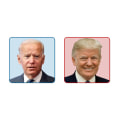As an expert in the field of politics and elections, I have a deep understanding of the restrictions on running for office in New York. These restrictions are in place to ensure that only qualified and eligible individuals are able to hold positions of power and make decisions that impact the state and its citizens.
Understanding the Basics of Elections in New York
In order to fully grasp the restrictions on running for office in New York, it's crucial to first have a basic understanding of how elections work in the state. New York has a two-party system, with the Democratic and Republican parties being the dominant forces in politics. Elections are held every two years, with the most recent being the 2020 general election. In New York, there are several types of elections, including primary, general, and special elections.Primary elections are held to determine which candidates will represent their respective parties in the general election. General elections are held to determine who will hold public office, while special elections are held to fill vacancies in office.
The Qualifications for Running for Office in New York
In order to run for office in New York, there are certain qualifications that must be met. These qualifications vary depending on the position being sought after, but there are some general requirements that apply to most offices. Firstly, a candidate must be a United States citizen and a resident of New York for at least five years prior to the election. They must also be at least 18 years old by the time of the election.Additionally, candidates must meet any specific requirements set by the office they are running for, such as being a registered voter or having a certain level of education or experience. It's also worth noting that individuals who have been convicted of a felony are not eligible to run for office in New York. This restriction is in place to ensure that those who have committed serious crimes are not able to hold positions of power.
Restrictions on Running for Specific Offices
While the general qualifications for running for office in New York apply to most positions, there are some specific restrictions in place for certain offices. For example, in order to run for governor, a candidate must be at least 30 years old and have been a resident of New York for at least five years. For the position of lieutenant governor, a candidate must meet the same requirements as the governor, with the additional requirement of being a resident of the same political party as the governor. This ensures that the governor and lieutenant governor are aligned in their political beliefs and can work together effectively. When it comes to running for state senator or assembly member, candidates must be at least 18 years old and have been a resident of their respective district for at least one year prior to the election.They must also be registered voters in their district.
The Importance of Financial Disclosure
In addition to meeting the qualifications and restrictions for running for office in New York, candidates are also required to disclose their financial information. This includes any sources of income, assets, and liabilities. This is important because it allows voters to see if a candidate has any potential conflicts of interest that could impact their decision-making while in office. Financial disclosure is also important because it promotes transparency and accountability. By making this information public, candidates are held accountable for their financial actions and decisions.The Role of Political Parties
In New York, political parties play a significant role in elections.As mentioned earlier, the state has a two-party system, with the Democratic and Republican parties being the dominant forces. These parties have a say in who can run for office under their banner, and they also provide support and resources to their candidates. For example, in order to run for office as a Democrat or Republican, a candidate must first be nominated by their party. This nomination process involves gathering signatures from party members and being approved by the party's leadership. This ensures that the party is putting forth qualified and viable candidates for election.
The Impact of Campaign Finance Laws
Campaign finance laws also play a role in who can run for office in New York.These laws regulate how much money candidates can raise and spend on their campaigns, as well as where that money can come from. One of the main goals of campaign finance laws is to prevent wealthy individuals or corporations from having too much influence over elections. By limiting the amount of money that can be donated to a candidate's campaign, these laws aim to level the playing field and give all candidates an equal chance at winning.



